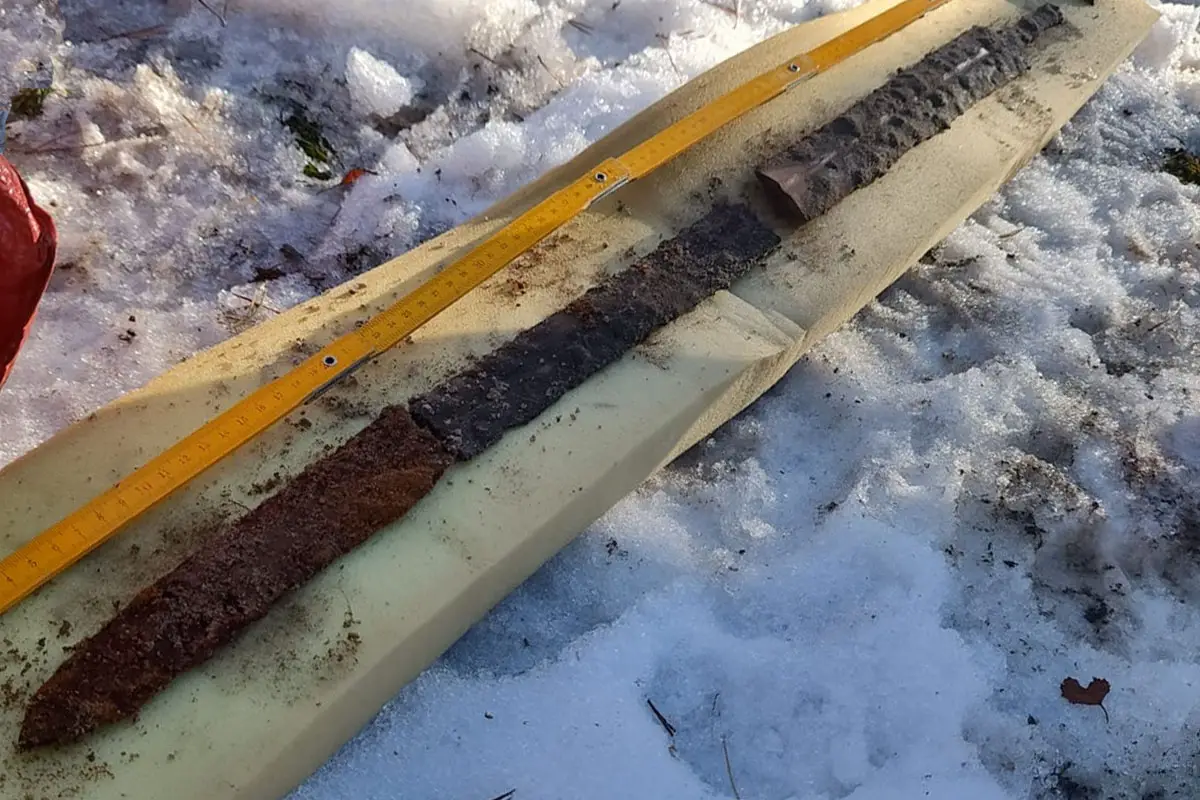Metal detectorists from the INVENTUM Association have uncovered a 2000-year-old Roman sword in the Kraków-Częstochowa Upland, Poland.
The discovery was made by Rafal Proszowski and Mariusz Lampa while searching for WW2 relics in the dense forests of the Polish Jurassic Highland. Upon reporting their find to local authorities, the sword was secured by a team from the Częstochowa Museum for further analysis and preservation.
According to experts, the sword is a spatha, a type of straight and long sword used by Celtic auxiliaries in the Roman army during the 1st century AD, gradually became a standard heavy weapon by Roman infantry in the 3rd century AD.
A modified version was also used by Roman cavalry, featuring a rounded tip to prevent accidental injury to the rider’s foot or horse.
The sword was found broken into three parts, suggesting it was deposited as part of a funerary offering, possibly as part of a Prezor Culture burial.
The Prezor Culture is an amalgam of a series of localised cultures often associated with the Vandals. In areas of Roman influence, high-status Prezor Culture burials are often accompanied with Roman imports, where the deceased was cremated and the ashes often placed in urns.
The culture’s decline in the late 5th century coincided with the Hun invasions. Other contributing factors may have included a social crisis triggered by the collapse of the Roman world and the disruption of trade networks with external societies.
In a public statement, the INVENTUM Association reported that the detectorists also discovered an axe and three perfectly preserved spurs from the late Middle Ages. These artefacts have also been sent to the Częstochowa Museum for further examination.
“This discovery sheds new light on the history of the region and confirms that Northern Jurassic still hides many secrets,” said the INVENTUM Association.
Header Image Credit : INVENTUM Association
Sources : INVENTUM Association





